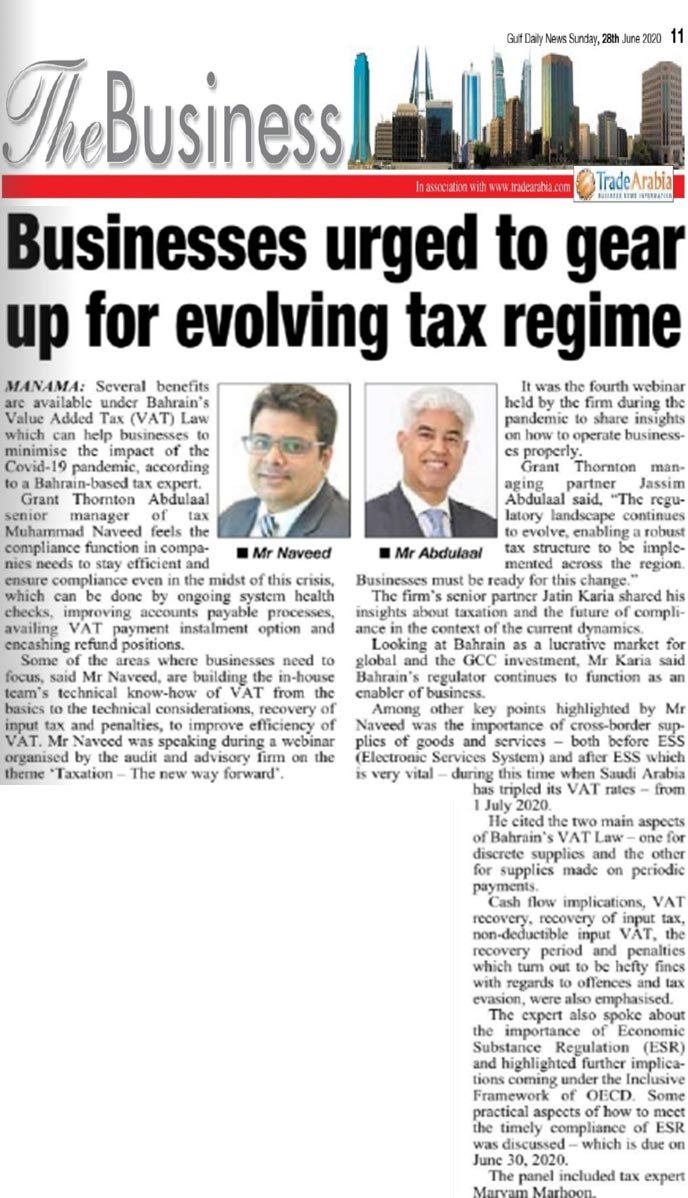-
Business Risk Service
Organisations must understand and manage risk and seek an appropriate balance between risk and opportunities.
-
Transaction Advisory, M& A, Business Consultancy
Transaction Advisory, M& A, Business Consultancy
-
IT Advisory
IT Advisory
-
Business Process Solutions
Business Process Solutions
-
Managing the VAT Audit
Managing the VAT Audit
-
Transfer Pricing
Global transfer pricing is all about understanding your business and the value drivers of your industry in an ever-changing environment.
MANAMA: Several benefits are available under Bahrain's Value Added Tax (VAT) Law which can help businesses to minimise the impact of the Covid-19 pandemic, according to a Bahrain-based tax expert.
Grant Thornton Abdulaal senior manager of tax Muhammad Naveed feels the compliance function in companies needs to stay efficient and ensure compliance even in the midst of this crisis, which can be done by ongoing system health checks, improving accounts payable processes, availing VAT payment instalment option and encashing refund positions.
Some of the areas where businesses need to focus, said Mr Naveed, are building the inhouse team’s technical know-how of VAT from the basics to the technical considerations, recovery of input tax and penalties, in order to improve efficiency of VAT.
Mr Naveed was speaking during a webinar organised by the audit and advisory firm on the theme 'Taxation – The new way forward'.
It was the fourth webinar held by the firm during the pandemic to share insights on how to operate businesses properly.
The firm's senior partner Jatin Karia shared his insights about taxation and the future of compliance in the context of the current dynamics.
Looking at Bahrain as a lucrative market for global and the GCC investment, Mr Karia said Bahrain's regulator continues to function as an enabler of business.
Among other key points highlighted by Mr Naveed was the importance of cross-border supplies of goods and services – both before ESS (Electronic Services System) and after ESS which is very vital – during this time when KSA has tripled their VAT rates – from 1 July 2020.
He cited the two main aspects of Bahrain's VAT Law – one for discrete supplies and the other for supplies made on periodic payments.
Cash flow implications, VAT recovery, recovery of input tax, non-deductible input VAT, the recovery period and penalties which turn out to be hefty fines with regards to offences and tax evasion, were also emphasised
The expert also spoke about the importance of Economic Substance Regulation (ESR) and highlighted the further implications coming under the Inclusive Framework of OECD. Some practical aspects of how to meet the timely compliance of ESR was talked about – which is due on 30 June 2020.
The panel included tax expert Maryam Marhoon.

